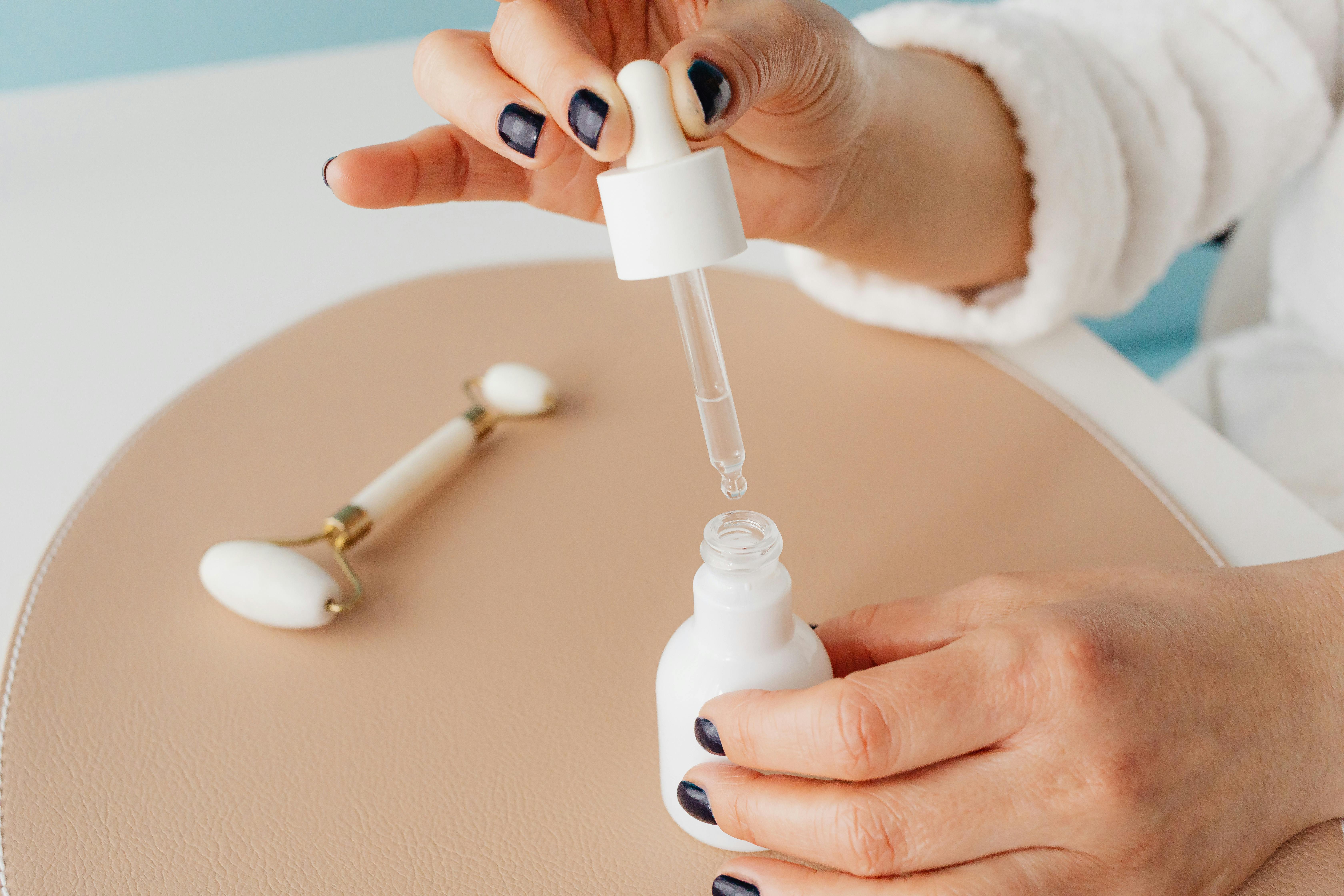How to Deal With PCOS Acne?: Causes & Treatment
5 minuteRead

We’ve all heard of Polycystic Ovary Syndrome (PCOS), a hormonal disorder. Did you know? It affects 1 in 10 women of reproductive age. Well, it can be extremely frustrating for those who’ve been diagnosed with this chronic condition. Irregular menstrual periods, excessive hair growth on the face, chest and abdomen, obesity, fertility issues, and severe to persistent acne are a few symptoms of PCOS.
PCOS is a medical disorder that causes the ovaries to overproduce androgens. Women with PCOS tend to have higher levels of testosterone and androstenedione. Owing to the abnormal levels of androgens, PCOS-induced acne can be quite frustrating to come to terms with. Imagine, acne out of puberty is only difficult to deal with. Hormonal acne from PCOS not just affects the physical appearance of women but they also tend to suffer from low self-confidence and self-esteem.
While PCOS acne can be alarming, it can be treated by taking the right medication and making a few significant lifestyle changes.

Major Causes of PCOS Acne Flare-ups
Women who have PCOS experience an overproduction of androgen. This hormone is responsible for an increase in sebum production. Owing to this, women experience oily skin, breakouts and acne. Contrary to small, superficial pimples, this kind of chronic acne forms knots under the skin, and large deep lesions. It can take the form of pustules, nodules, cysts, whiteheads and blackheads.
While it can occur anywhere, it mostly appears on the upper back, upper neck, jawline and chin. Waking up to flare-ups almost becomes a daily struggle. However, not all women who have persistent acne are necessarily dealing with PCOS. Acne is just one of the many symptoms.
The PCOS-related causes of acne include excessive testosterone which stimulates the oil glands and hair follicles, which further causes acne to develop. It can worsen when a woman is menstruating. Besides this, other common causes of severe acne include:
- Stress: Stress in general isn’t a good thing. In response to stress, the body tends to produce more androgens which can contribute to acne.
- Hormonal Imbalance: Majority of the issues women experience is due to a hormonal imbalance. Menstruation, pregnancy and menopause result in fluctuation of hormone levels.
- Adverse effect of hair and skincare products: Certain hair and skin products can clog pores, increase sebum production and irritate the skin.
- Unhealthy lifestyle: Believe it or not, your lifestyle can impact your skin directly. Pollution, poor diet, stress, insufficient water intake and not keeping your hair and skin clean can result in acne and trapped dead skin cells.
All that being said, acne caused due to PCOS can be treated. Of course, you cannot expect it to go overnight. However, making a few lifestyle modifications can reduce flare-ups considerably.

How to Deal with PCOS Acne?
Diet Modifications
PCOS can cause chronic inflammation. Therefore, it is very important to follow an anti-inflammatory diet. Start by consuming a balanced diet so that you can maintain a healthy weight. PCOS can make it harder to lose weight. High body fat can make the symptoms worse. Ensure your meal contains protein, fruits and whole grains, high-fiber foods such as lentils, chickpeas and leafy greens, and nuts. Avoid inflammatory foods such as red meat, alcohol, sugary desserts, corn, dairy and fast foods. When you consume a high-nutrient, antioxidant diet, you will start noticing a visible difference.
Oral Contraceptives
Birth control pills can be used to treat hormonal acne. This particularly helps for women who do not intend to get pregnant. However, any oral contraceptive pills won’t do. Instead of the minipill, a combination pill (oestrogen and progestin) should be taken. Before taking any birth control pills, please consult your doctor as it usually isn’t suggested for everyone. If you’re above the age of 35 and have a history of breast cancer, blood clots or high blood pressure, you shouldn’t be consuming the pills.
Retinoids
Regular use of a retinoid cream can help cure your PCOS acne. Retinol is a form of vitamin A that can treat all types of acne as it increases the rate by which new skin cells are produced. It keeps your pores clear of any kind of build-up including oil and sebum, and also stops pimples from forming. You can find a retinoid cream at your local pharmacy. They also stock other over-the-counter acne medications. Using the cream regularly will result in unclogging of the pores, lightening of scars and evening of the skin tone.
Use an anti-acne serum
Look for skincare products that contain niacinamide, salicylic acid, benzoyl peroxide and glycolic acid. Ointments and creams that contain these active ingredients keep acne at bay and also improve the overall texture of the skin. Besides a cream formulation, these ingredients are also found in cleansers and body washes. It works by removing dirt and oil from your pores, and layers of dead skin. However, don’t completely rely on these ingredients to get rid of acne. They do help with mild breakouts but they’re not enough for PCOS acne.
Cultivate a good skincare routine
Dermatologists always stress upon the importance of a wholesome and step-by-step skincare routine. However, our busy lifestyles don’t give us enough time to follow one. Well, it doesn’t have to be an extensive one. It should rather be a consistent one. Make sure your routine includes cleansing, toning and moisturising. As far as possible, try to use a cleanser which has salicylic acid or tea tree in it. Since it has antibacterial properties, it helps with controlling oil production. Also, if you can’t follow a skincare routine, ensure you wash your face once you get home from work and after you take off your makeup.
Move your body
Regular exercise is said to regulate hormone cycles. It assists with insulin sensitivity and weight control. If you’re a woman with PCOS, we don’t suggest vigorous exercises. Instead, something like a brisk walk, a jog, cycling and swimming will do. While it helps you manage PCOS symptoms, it also helps with improving muscle health and promotes better sleep.
Acne is a common symptom of PCOS. The condition triggers an overproduction of hormones. However, acne is something everybody goes through irrespective of whether you have PCOS or not. There is nothing to be embarrassed or ashamed about. Don’t let the condition determine how you feel about yourself. The least you could do is to follow the above treatments, and who knows you can at least control your acne.
Every year, the month of September is celebrated as PCOS Awareness Month.
Write, Record and Answer! Consume Unlimited Content! All you need to do is sign in and its absolutely free!
Continue with one click!!By signing up, you agree to our Terms and Conditions and Privacy Policy.










